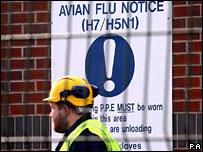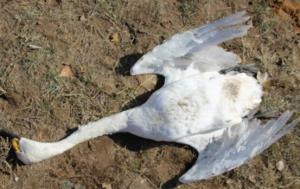 Following an outbreak of H5N8 strain avian influenza in a small free-range flock in County Wicklow on December 12th, China has banned all imports from Ireland. The localized case was preceded on November 8th by isolation of H5N8 virus from a dead peregrine falcon in County Limerick.
Following an outbreak of H5N8 strain avian influenza in a small free-range flock in County Wicklow on December 12th, China has banned all imports from Ireland. The localized case was preceded on November 8th by isolation of H5N8 virus from a dead peregrine falcon in County Limerick.
Ireland along with ten other E.U. nations has experienced outbreaks of H5N8 predominately in free-range flocks of chickens, turkeys and waterfowl. Cases diagnosed from October onwards are attributed to shedding of virus by migratory waterfowl.
 China has no justification to ban imports from the entire nation of Ireland given that the World Organization for Animal Health (OIE) allows for regionalization. The second factor disqualifying the action by China is that H5N8 was diagnosed in a large number of wild swans in Shanxi Province in mid-December. It is an established reality that H5 and H7 avian influenza viruses are endemic in China, further invalidating their action.
China has no justification to ban imports from the entire nation of Ireland given that the World Organization for Animal Health (OIE) allows for regionalization. The second factor disqualifying the action by China is that H5N8 was diagnosed in a large number of wild swans in Shanxi Province in mid-December. It is an established reality that H5 and H7 avian influenza viruses are endemic in China, further invalidating their action.
The lesson from this ban is that China will impose restrictions based on real or perceived risks in contravention of accepted trade norms. China will only comply with rules if it is to their benefit. This consideration should be borne in mind as China becomes a more important trade partner. For the first eleven months of 2020, the U.S. exported 343,000 metric tons of poultry products including paws, bone-in chicken parts, wings and by-products valued at $613 million.